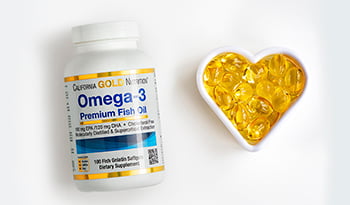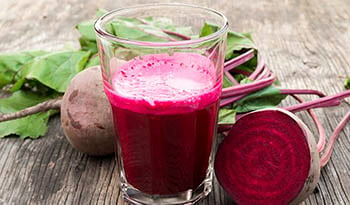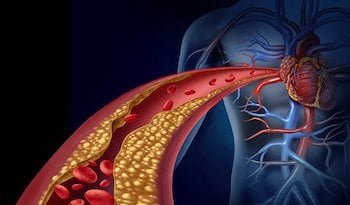8 Product gyomorégess and your refluxus
Mit jelent a gyomorégés?
Gyomorégés, savas reflux és emésztési zavar gyakori kifejezések, amelyeket a felső emésztési problémák címkézésére használnak, amelyek nem kapcsolódnak fekélyhez. A gyomorégés mellett a savas reflux és az emésztési zavarok tünetei közé tartozhatnak nyelési nehézségek, étkezés utáni nyomás vagy nehézség érzése, étkezés utáni puffadás érzése, gyomor- vagy hasi fájdalmak és görcsök.
Gyomorégés okai
A gyomorégést és a savas refluxhoz kapcsolódó egyéb tüneteket leggyakrabban a gyomornedvek nyelőcsőben történő áramlása okozza, ami égő kellemetlenséghez vezet, amely felfelé sugárzik, és a fekvés súlyosbodik.
Leggyakrabban a reflux egy kör alakú szelep megváltozott funkciójának köszönhető, amely elválasztja a nyelőcsőt a gyomortól, amelyet az alsó nyelőcső záróizomnak (LES) neveznek. Néha a diszfunkció mechanikai tényezőknek, például hiatális sérvnek, terhességnek vagy elhízásnak köszönhető. Ez a túlevés vagy rossz emésztési funkció eredménye is lehet.
Az alsó nyelőcső záróizom ellazulásával a gyomortartalom a nyelőcsőbe reflux. A reflux savból, epékből, pepszinből és más enzimekből áll, amelyek a nyelőcső károsodásához vagy irritációjához vezetnek. A refluxot cigarettadohányzás, csokoládé, sült ételek, szénsavas italok, alkohol, koffein, magas vérnyomás elleni gyógyszerek, antidepresszánsok, hormonok, antibiotikumok, kemoterápiás szerek és biszfoszfonátok is okozhatják. Ezen tényezők közös vonala az, hogy csökkentik az alsó nyelőcső záróizom tónusát. A tünetek különösen rosszak lehetnek, ha egy személy fekszik.
8 Természetes kiegészítők gyomorégésre, savas refluxra és emésztési zavarokra
Számos természetes termék létezik, amelyek bizonyított klinikai előnyökkel járnak a gyomorégés, a savas reflux és az emésztési zavarok javításában:
1. Kalcium
Kalcium -karbonát és kalcium-citrát alkalmazható antacidokként a gyomorégés alkalmi enyhítésére. Az ajánlott egyszeri adag 500-1000 mg.
2. Betain-hidroklorid (HCL)
Betain-hidroklorid (HCL) segíthet, ha a gyomorégés vagy emésztési zavar oka a gyomorsósav (HCL) szekréció hiánya. A gyomorsav kiválasztásának képessége az életkorral csökken. Egyes tanulmányok kimutatták, hogy a 60 évesnél idősebb emberek több mint felében alacsony a gyomorHCL-kibocsátás.1 A gyomorégés mellett a HCL hiánya gyakran gázt és puffadást okoz az étkezés után 30 percen belül. Szerencsére a HCL étrend-kiegészítőként történő bevétele segíthet abban, hogy a szervezet nem termel.
Az ajánlott felnőtt dózis HCL-helyettesítő terápiához egy vagy két 500 mg-os kapszula étkezés közben, legfeljebb naponta háromszor. A terméknek tartalmaznia kell a pepszin enzimet vagy egy gombás proteázt a fehérje emésztéséhez is.
Megjegyzés a biztonságról: Ne vegye be a HCL-t éhgyomorra, néhány harap étel után vegye be. Használat előtt konzultáljon egészségügyi szakemberrel, ha aktív peptikus fekélyben szenved, terhesség alatt vagy szoptatás alatt. Gyermekektől elzárva tartsa.
3. Alginát
Az alginát, más néven alginsav, egy élelmi rost, amely a barna algasejtfalában található. Az alginát egyedülálló képességgel rendelkezik, hogy saját súlyának 200-300-szorosát tartsa vízben, így természetes gélesedő anyag.
Ha természetes pufferelő szerekkel, például kalcium-karbonáttal együtt veszik be, az alginát nagyon hatékony „tutajt” termel, amely a gyomortartalom tetején lebeg, és blokkolja a gyomortartalom refluxját a nyelőcsőbe. Ahogy az alginát komplex áthalad a bélrendszerben, az alginát részben emésztődik, és más élelmi rostként viselkedik, amíg végül ki nem kerül a testből. 2,3
Ahhoz, hogy az alginát elvégezze a munkáját, étkezés után rágótablettában vagy folyékony készítményben kell bevenni. Ha kapszula formájában vagy étkezés közben veszik be, egyszerűen keveredik a gyomor tartalmával, és nem képez tutajt. A tipikus dózis 400-1000 mg minden étkezés után és 30 perccel lefekvés előtt. Csak éjszakai használatra vegye be 30 perccel lefekvés előtt, és kerülje a lefekedést 30 percig.
Az alginát esetében nincsenek mellékhatások, és nem ismert, hogy bármilyen gyógyszerkölcsönhatásról lenne szó.
4. Melatonin
A melatonin a gyomor és a belek fontos védője. Valójában a bélrendszer 400-szorosa a melatonin mennyiségét az agyhoz képest. Számos tanulmány kimutatta, hogy a melatonin jelentős értékkel bír a gyomorégés kezelésében. A melatonin növeli az LES nyomását (azaz jobb LES tónusát), növeli a szérum gasztrint (egy hormon, amely serkenti a gyomornedv szekrécióját, és amelyet a gyomorfal választ ki a véráramba az élelmiszer jelenlétére válaszul), és csökkenti a gyomorsav kibocsátását. A melatonin adagja 3 mg volt éjszaka.4
5. Deglycirrhizinált édesgyökér (DGL)
Deglicirrhizinált édesgyökér (DGL). Ezt a természetes terméket úgy állítják elő, hogy egy vegyületet, a glicirritinsavat eltávolítják az édesgyökérből, mert az növelheti a vérnyomást. A DGL stimulálja a normál védelmi mechanizmusokat, hogy megvédje és gyógyítsa a gyomor és a nyelőcső nyálkahártyáját, valamint enyhíti a gyomorégést és az emésztési zavarokat.5,6 A DGL javítja a bélrendszert bevonó védőanyagok minőségét és mennyiségét, növeli a bélsejtek élettartamát és javítja a bélnyálkahártya vérellátását. Vegyen be egy vagy két DGL rágótablettát húsz perccel étkezés előtt 8-16 hétig, hogy biztosítsa az irritáció teljes gyógyulását.
6. Mastic Gumi
Mastic gum a masztikfa gyantájából származó természetes termék, amely hatékony a H. pylori ellen. Egy randomizált, placebo-kontrollos vizsgálatban a dyspepsiában szenvedők 77% -ában, akik 3 héten át naponta háromszor 350 mg-os masztigumit szedtek, javultak a gyomorégés, emésztési zavarok, gyomorfájdalom és felső hasi fájdalom tünetei.7
7. Gyömbér Gyökér és Articsóka Levél
Kimutatták, hogy a gyömbérgyökér (Zingiber officinalis) és articsóka levél (Cynara scolymus) kivonatainak kombinációja hasznos az emésztési zavarok, valamint a gyomor- és bélmotilitás javításában, ami gyomorégéshez is vezethet. Az alkalmazás előnyös lehet a nem fekélyes dyspepsia, valamint más funkcionális gyomor-bélrendszeri rendellenességek kezelésében. A dózis naponta kétszer volt egy 20 mg-os gyömbérkivonat (33% gingerol és shagoál) és 100 mg-os articsóka kivonat (20% koffeoilkinsav).8
8. Borsmenta olaj
Borsmentaolaj bélben bevont kapszulában, hogy ne bomlik le a gyomorban, hanem a vékonybélbe és vastagbélbe juttatható, segíthet emésztési zavarokban és gyomorirritációban. Ezek a készítmények hatékonynak bizonyultak mind a felső emésztőrendszer irritációjának, mind a vékonybél és vastagbél ingerlékenységének tüneteiben. Adagolás: vegyen be egy vagy két kapszulát naponta háromszor húsz perccel étkezés előtt.9
Milyen kiegészítőt kell szednem gyomorégés, savas reflux és emésztési zavarok esetén?
Ahhoz, hogy segítséget nyújtsunk a megfelelő termékhez, íme néhány ajánlás a mögöttes funkciók alapján:
- Mechanikai tényezők - Ha elhízott, terhes vagy hiatális sérv van, a legjobb természetes módszer az alginát tutajterápia. Ha túlsúlyos, a fogyás gyakran gyógyító.
- Alkalmi gyomorégés - A kalciumtartalmú antacidok alkalmi alkalmazása megfelelő, de hosszú távú használatra nem ajánlott. Az alginát tutajterápia szükség szerint is hasznos.
- Bizonyos ételek lenyelése miatti irritáció - Néha a reflux tünetei kávé, szénsavas italok, alkohol, csokoládé, zsíros ételek, citrusfélék, fűszeres ételek stb. lenyelésének köszönhetők. Ezeknek az élelmiszereknek a kiküszöbölése és elkerülése ajánlott, de a személy szükség szerint kalciumtartalmú antacidokat vagy alginát raktápiát is alkalmazhat. DGL egy másik lehetőség.
- Sósav vagy emésztőenzimek hiánya - A gyomorsav elégtelen kibocsátása gyomorégést és reflux tüneteket okozhat, de általában gázhoz és puffadáshoz is vezet az étkezést követő 30 percen belül. A HCL-kiegészítés egyszerű vizsgálata az ajánlott adagolási szinten nagyon hasznos lehet.
- Irritábilis bél jelenléte gyomorégéssel együtt - Vagy a gyömbér-articsóka kombináció, vagy a bélben bevont borsmentaolaj.
- Éjszakai gyomorégés - Az ágy fejének hat hüvelykre emelése gyakran hasznos. Az alginát tutajterápia hatékony, csakúgy, mint a melatonin (3 mg lefekvés előtt).
- Gyomorégés és rossz alvásminőség kombinációja - Melatonin (3 mg lefekvés előtt).
Házi Gyógyomorégés és Savas Reflux Ellésére
Számos más hasznos természetes segédeszköz létezik a reflux kezelésére:
Aloe Vera
Az aloe vera segít csökkenteni a gyulladást, és hasznos lehet gyomorégés esetén, ha a gyomor és a nyelőcső bélése irritálódik vagy gyulladt.10 Az aloe kivonat formájában kapszulákban vagy aloe gyümölcslében vehető be.
Almaecet
Az almaecet a savpótló enyhébb formája, amint azt fentebb tárgyaltuk. Hasznos lehet két uncia nyers, szűretlen almaecet fogyasztása étkezés előtt. Kapszulák és tabletták is használhatók, amelyek egyenértékű adagot biztosítanak.
Alkáli víz
Egy pohár lúgos víz elfogyasztása (pH felett 8) segíthet, vagy elkészítheti a sajátját, ha frissen facsart citrom éket adunk hozzá 8 uncia vízbe.11
Cukormentes gumi
Az étkezés utáni cukormentes gumi rágása szintén kimutatták, hogy segít megállítani a gyomorégést és a savas refluxot. A cukormentes gumi rágása serkenti a szájban lévő nyálmirigyeket, hogy nyál termeljenek. Ez a felesleges nyál hígítja és kiküszöböli a savat, amely a nyelőcsőbe refluxálhat. A kutatások azt mutatják, hogy a cukormentes gumi rágása csökkenti a krónikus savas refluxos betegek tüneteit, és segíthet azoknak a betegeknek is, akik alkalmanként gyomorégéstől és refluxban szenvednek.12
Életmód-változások, amelyek befolyásolják a gyomorégést és a savas refluxot
Gyomorégés és savas reflux általában éjszaka fordul elő, amikor ágyban fekszik. Ennek oka a gravitáció, amely lehetővé teszi a gyomorsav visszatérését a nyelőcsőbe. Az ágy fejének felemelése téglával vagy az ágykeret feje alatti kétszer-négyes tömbökkel segíthet csökkenteni a gyomorégés éjszakai tüneteit.
Az étkezés során óvatosság szintén segít a gyomorégés enyhítésében. A kicsi, jól rágott harapások könnyebben emészthetők, mint a nagy harapások, és több idő eltöltése ülve étkezésre is segíthet.
Referenciák:
- Howden CW, Hunt RH. Spontán hipoklórhidria az emberben: lehetséges okok és következmények. Emésztőbetegségek 1986; 4 (1) :26—32.
- Leiman DA, Riff BP, Morgan S. Az alginát terápia hatékony kezelés a GERD tüneteinek kezelésére: szisztematikus áttekintés és metaanalízis. Nyelőcső december. 2017; 30 (5): 1—9.
- Mandel KG, Daggy BP, Brodie DA, Jacoby Hi. Felülvizsgálati cikk: alginát-raftkészítmények gyomorégés és savas reflux kezelésében. Élelmiszer-farmakológia és terápia 2000:14 (6): 669-90.
- Kandil TS, Mousa AA, El-Gendy AA és mtsai. A melatonin lehetséges terápiás hatása a gyomor-nyelőcső reflux betegségben. BMC Gastroenterol 2010; 10:7-16.
- Morgan AG, McAdam WA, Pacsoo C és mtsai. A cimitidin és a Caved-S összehasonlítása a gyomorfekély kezelésében és az azt követő fenntartó terápiában. Gut 1982; 23:545 —551.
- Raveendra KR, Jayachandra, Srinivasa V és mtsai. A Glycyrrhiza glabra (GutGard) kivonat enyhíti a funkcionális dyspepsia tüneteit: randomizált, kettős vak, placebo-kontrollos vizsgálat. Evid alapú kiegészítő Alternat Med. 2012; 2012:216970.
- Dabos KJ, Sfica E, Vlatta LJ, Frantzi D, Amygdalos GI és Giannikopoulos G. Hatékony-e a Chios mastic gum a funkcionális dyspepsia kezelésében? Prospektív randomizált kettős vak, placebo-kontrollos vizsgálat. J Etnopharmacol 2010; 127 (2): 205-209.
- Lazzini S, Polinelli W, Riva A, Morazzoni P, Bombardelli E. A gyömbér (Zingiber officinalis) és az articsóka (Cynara cardunculus) kivonat kiegészítésének hatása a gyomor motilitására: kísérleti randomizált vizsgálat egészséges önkénteseken. Eur Rev Med Pharmacol Sci. 2016; 20 (1): 146-9.
- Kligler B, Chaudhary S. Borsmenta olaj. Am Fam orvos. 2007 április 1; 75 (7): 1027-30.
- Panahi Y, Khedmat H, Valizadegan G, Mohtashami R, Sahebkar A. Az Aloe vera szirup hatékonysága és biztonságossága a gastroesophagealis reflux betegség kezelésében: kísérleti randomizált pozitív kontrollos vizsgálat. J Tradit Chin Med. 2015 december; 35 (6): 632-6.
- Zalvan CH, Hu S, Greenberg B, Geliebter J. A lúgos víz és a mediterrán étrend és a protonpumpa gátlásának összehasonlítása a gégépharyngealis reflux kezelésében. JAMA Otolaryngol fejnyaksebészet. 2017 október 1; 143 (10): 1023-1029.
- Moazzez R, Bartlett D, Anggiansah A. A cukormentes rágógumi hatása a gyomor-nyelőcső refluxra. J Dent Res. 2005 november; 84 (11): 1062-5.
FELELŐSSÉGKIZÁRÓ NYILATKOZAT:A jelen blognak nem célja diagnózis felállítása...

















































































 Tartalomjegyzék
Tartalomjegyzék














